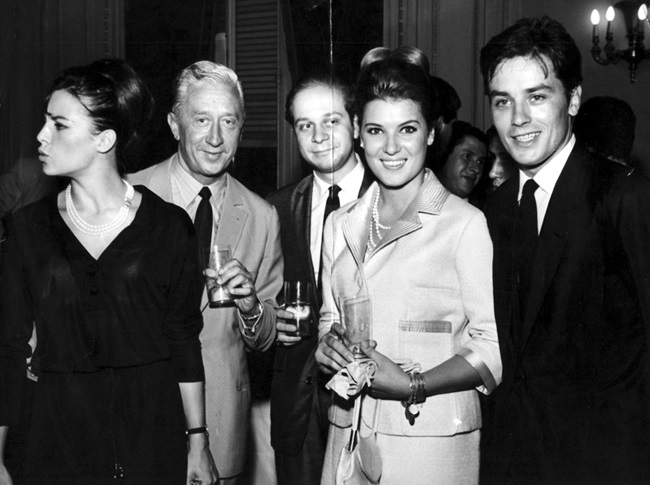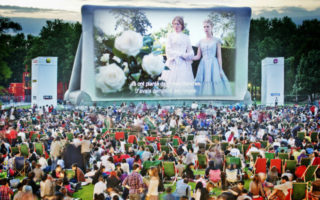Life and Love in Paris: A Tribute to Film Icon Alain Delon
Alain Delon. Those “four syllables known worldwide,” an international sex symbol and master of French cinema, recently left the world’s stage. But back in 1957, when the young actor turned down a seven-year acting contract in America to pursue his career in France, what role did this play in shaping the actor’s long-standing relationship with Paris, and why, in many cases, was this more complicated than meets the eye?
In 1935, an autumn baby was born to parents Édith (née Arnold) and Fabien Delon in the rich suburbs just outside of Paris. Little did the couple know that their son would grow up to become the mysterious ladies’ man of French filmography.
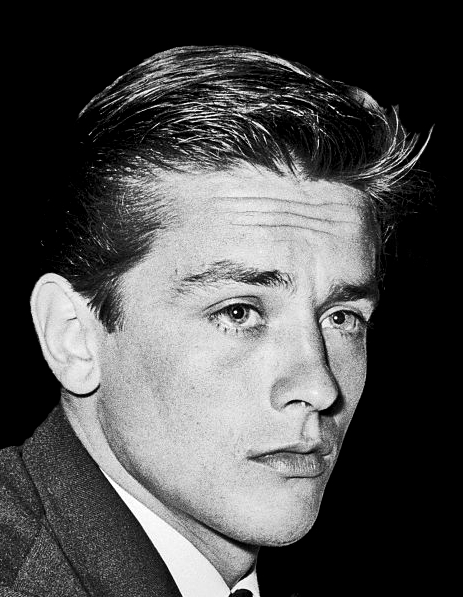
Alain Delon in 1961. Public domain
A turbulent adolescence, which saw the actor rebel against his schooling and training as a butcher, led Delon to enroll in the French Navy where he was stationed in French Indochina and subsequently arrested for 11 months. Once free, Delon eventually returned to the French capital, where he mixed in the artistic and social circles of the Saint-Germain-des-Prés district. It was here that Delon discovered that there was, in fact, more to life than menial jobs, petty crime and predictive institutionalism.
There was art.

Saint-Germain-des-Prés. Photo credit: Mbzt / Wikimedia commons
After an introduction into the world of acting, through his relationship with actress Brigitte Auber, Delon’s Parisian network of wonder brought him to the 1957 Cannes Film Festival. Delon caught the eye of a film director, and the figure associated with 1960s style and stardom was born.
By 1960, Delon had already been cast in his breakthrough role in a film called Purple Noon by René Clément, a masterpiece in plein soleil that charmed audiences worldwide. (It was based on the 1955 novel The Talented Mr. Ripley.)
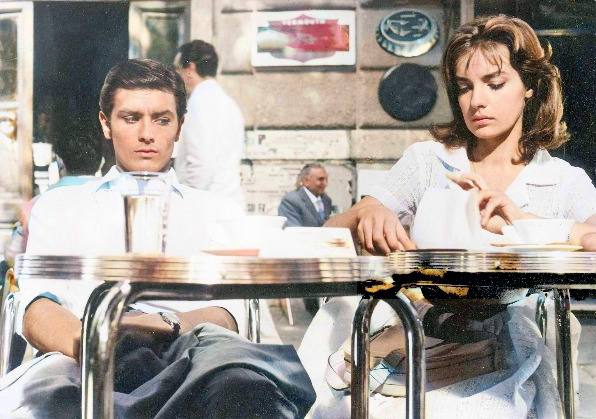
Alain Delon and Marie Laforêt during the shooting of Purple Noon in Italy, August 1959. Public domain
Delon was destined for a long career in cinema after his successful debut, with many films being filmed in Paris to capture the urban-crime element which characterized his work. Such films include Le Samouraï (1967), a neo-noir film gang film; Le Cercle Rouge (1970), a crime film mostly set in Paris; and Is Paris Burning? (1966), a war film set in occupied France. Not forgetting the Mediterranean sublimity of Delon’s characters such as the brooding and bronzed killer in La Piscine and his debut role in Purple Noon; he certainly made a name for himself as the rough-around-the-edges city hitman.
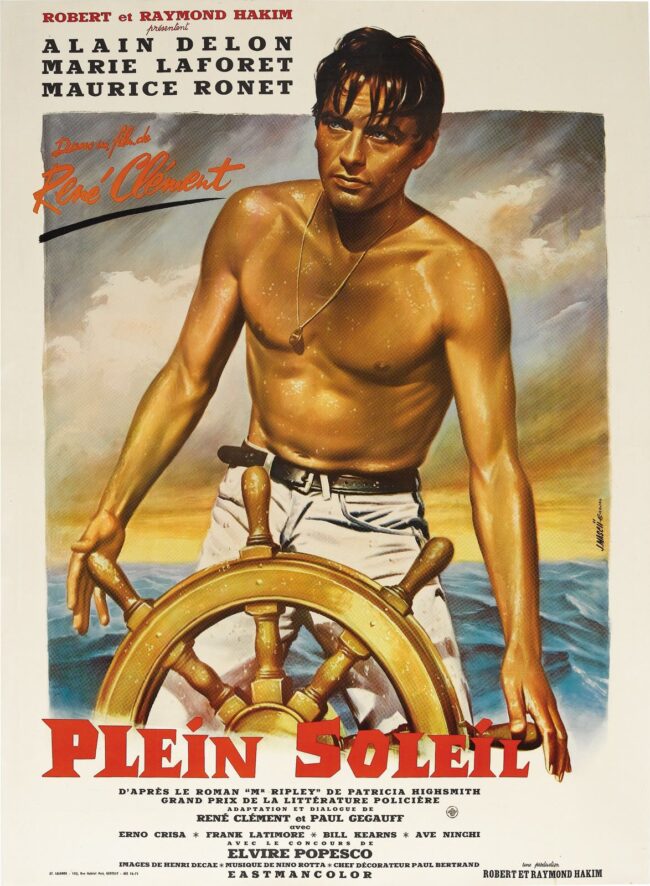
Plein Soleil, 1960
But beyond the big screen, what was Delon’s life like in Paris? Between 1960 and 1964, Delon was living out a wild love affair with actress Romy Schneider in their 780m2 apartment in western Paris. Located on the Avenue du Président-Kennedy, between the 7th and 9th floors, it had incredible views of the Eiffel Tower and River Seine. Equipped with six bedrooms, a gym, a sauna and even a hammam (Turkish bath)—Delon’s home was the ultimate Parisian sanctuary. When the triplex entered the property market in 2012, this luxury was matched with an evaluation of 46 million euros.

Romy Schneider and Alain Delon. © Cinémathèque Française
Aside from the glamour, fortune and fame lay a much darker scandal hidden in Delon’s past.
The Marković affair was a widely talked about case during its time and nearly ruined Delon’s public image. On October 1st, 1968, Delon’s bodyguard (whom the actor referred to as a “friend”) was found dead on the western outskirts of Paris.
Stefan Marković had a brief fling with Delon’s former wife, Natalie, shortly after she parted with Delon. Marković also allegedly had corrosive information on the actor. A letter written by Marković to his brother was discovered, stating: “If I get killed, it’s 100% the fault of Alain Delon and his godfather Francois Marcantoni.” Both Delon and Marcantoni, a Corsican gangster, were called into immediate investigation but the charges were eventually dropped in 1973 due to a lack of evidence. The crime remains unsolved to this day.
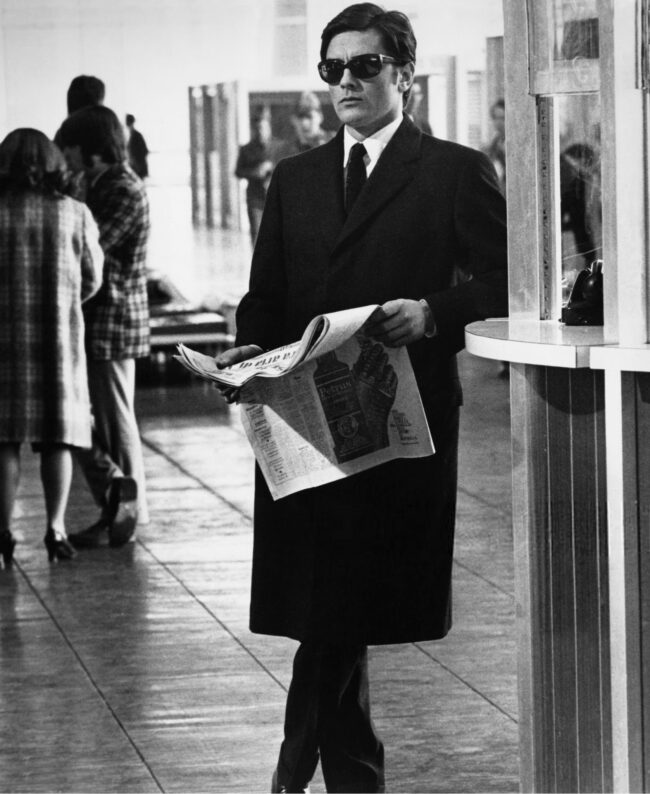
Alain Delon in The Sicilian Clan (1969). Public domain
It begs the question of whether Delon’s real persona was starting to merge with his roles in cinema – was his criminal past catching up with him? Following a spike of press attention during his arrest, one would presume that Delon’s career would have come to a halt, but it had the opposite effect. It boosted it.
During his dazzling career, Delon lived a long life in Paris, with a second home in Douchy (75 miles southeast of Paris) where he was recently laid to rest. He also lived in Switzerland for many years, where he was granted Swiss citizenship in 1999.
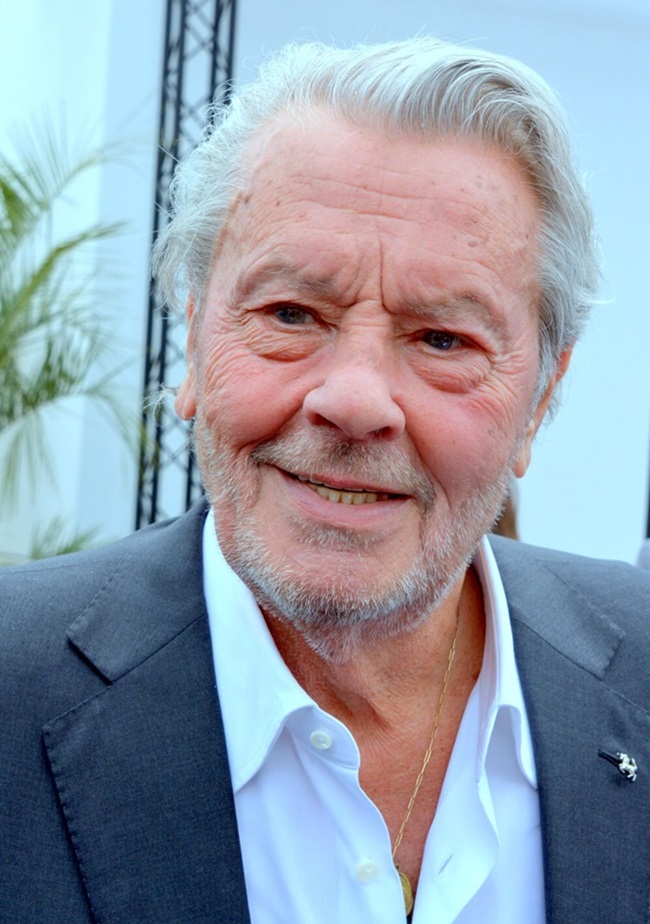
Alain Delon at the Festival de Cannes 2019. Photo: Georges Biard/ Wikimedia Commons
In an interview on Matin Bonheur in 1987, Delon was asked the question:“Do you have any regrets?”
For a moment he looks away in what looks like a second’s reflection, his tumultuous life flashing in front of his eyes, and instinctively replies:
“No, I have no regrets.”
After a lifetime making 90 films, reaching 136 million spectators, receiving two Césars, and a Palme d’honneur at the Cannes Film Festival in 2019 — Delon didn’t regret not signing that contract with Hollywood in 1957. He made it in Paris.
Lead photo credit : Alain Delon with his wife Nathalie (left) in Buenos Aires in 1964. Photo: Wikimedia Commons
More in Acting, Alain Delon, French film, French history
